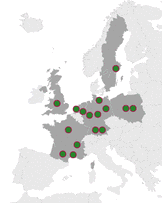Boys or girls?
Some girls or boys may not behave as typical girls or boys. For instance, a girl may like boys’ toys and activities, prefer to play with boys and dislike playing with girls. This does not mean that she is unhappy about being a girl and about living like a girl. Fortunately, very few children with DSD question their sex, but some may feel confused for shorter or longer periods of time when they grow older. This may happen even if there are no visible signs of their DSD and while nobody ever questioned whether they are male or female. Such concerns, whilst understandable, are unfortunate.
They may lead to both parents and (older) children worrying about something which might not necessarily need to matter to them. Instead, what really counts is how they experience themselves, whether that be as a male, a female or differently; see sites below. Even more important is whether others acknowledge and respect who they are. No body characteristic can override their feeling of being male or female. A girl with typically male XY chromosomes who has always experienced herself as a girl is a girl. Trying to force someone into an identity is harmful.
The few children who are clearly unhappy about being a boy or a girl for long periods of time may want to talk to people who are specialized in this area. See below for sites of specialty clinics!
Sites on gender
 http://itspronouncedmetrosexual.com/2013/05/my-ted-talk-understanding-the-complexities-of-gender/
http://itspronouncedmetrosexual.com/2013/05/my-ted-talk-understanding-the-complexities-of-gender/ http://binarythis.com/
http://binarythis.com/  http://everydayfeminism.com/2014/03/intersex-awareness/
http://everydayfeminism.com/2014/03/intersex-awareness/
Gender identity services
UK (specifically for children and adolescents)


